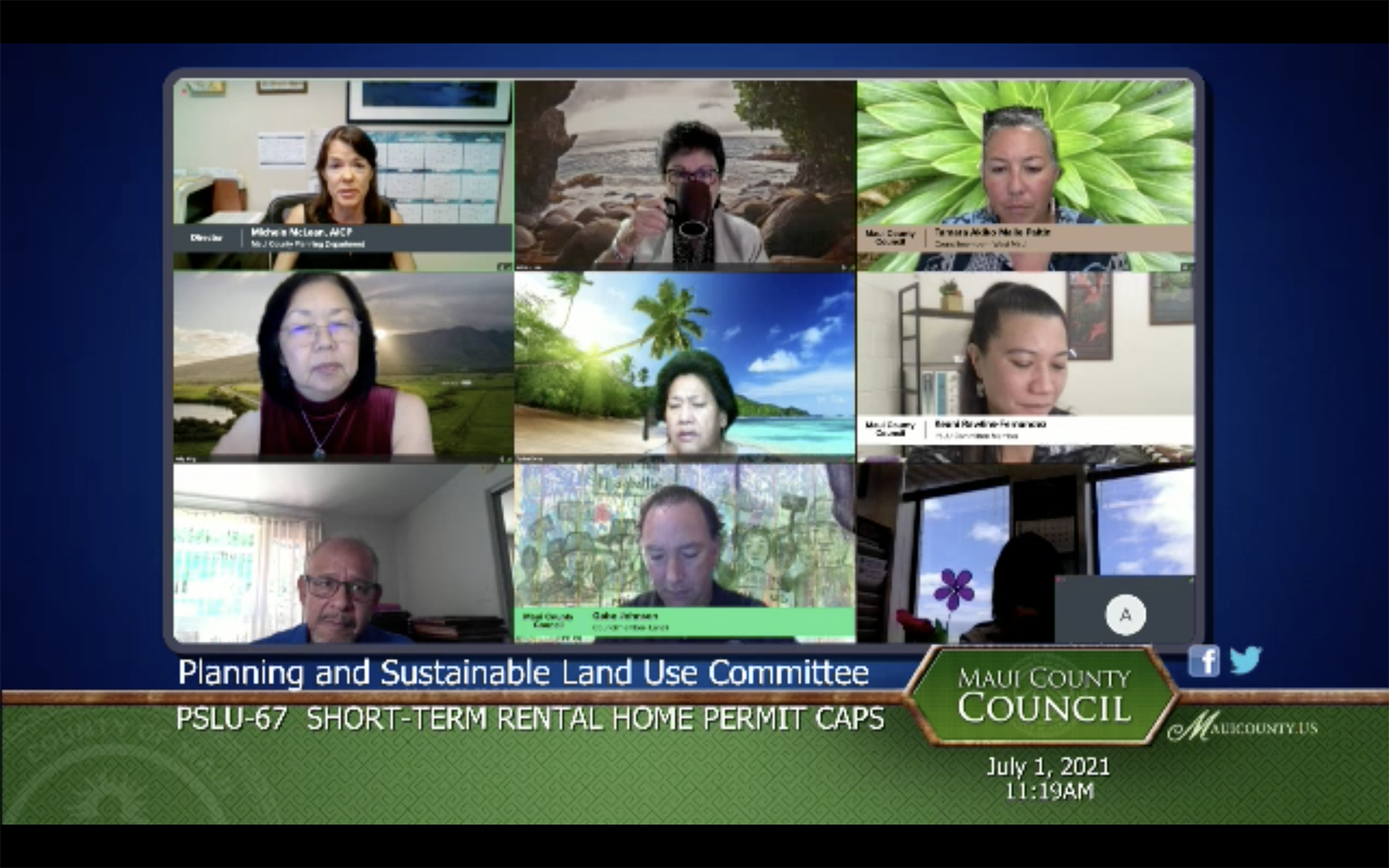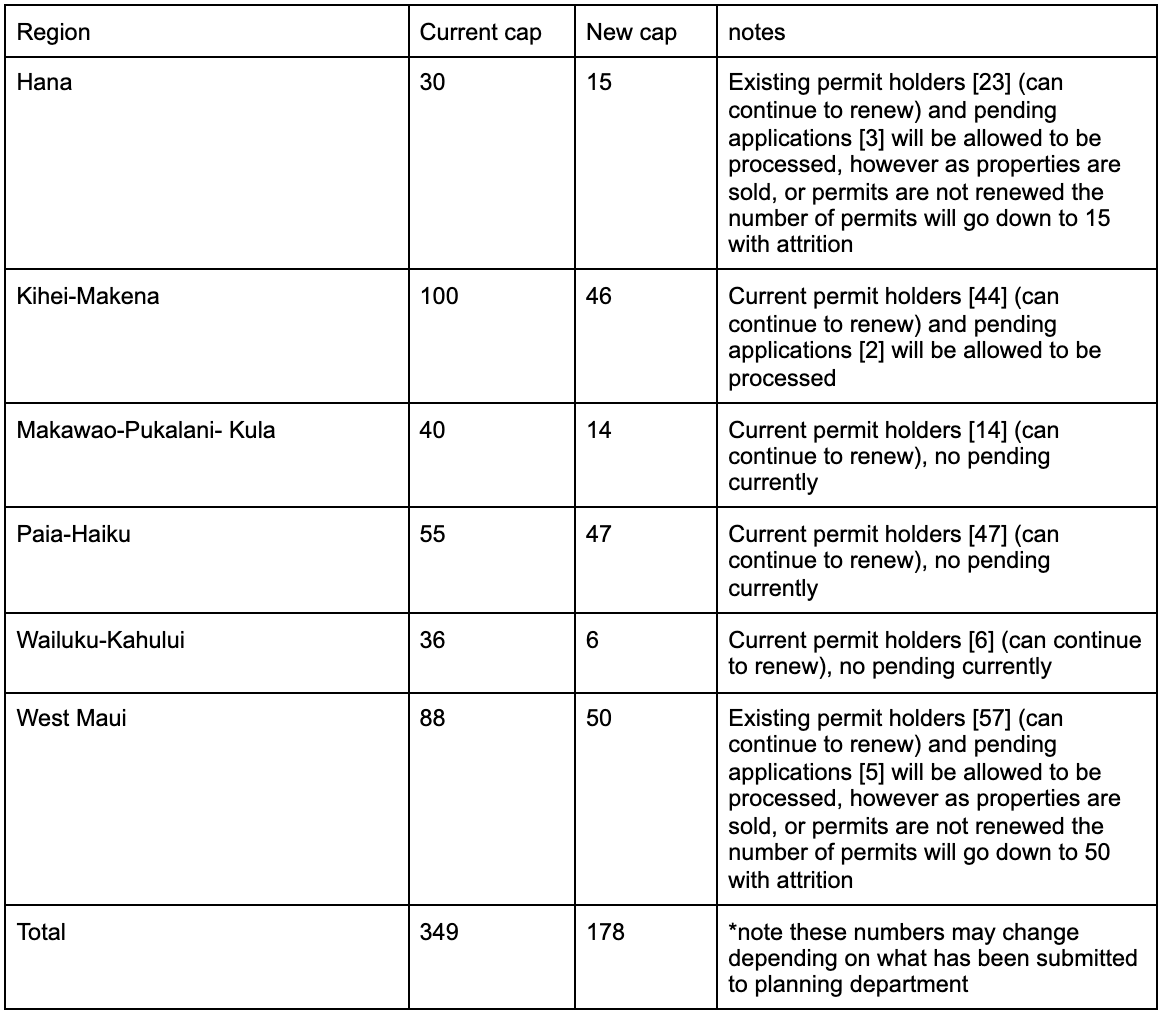
What Happened at the PSLU meeting 7/1/21
In the op-ed by Council member Tamara Paltin, [https://mauinow.com/2021/06/29/short-term-rental-home-caps-scheduled-for-discussion-in-committee/] she is quoted as saying that, ““Reducing the number of short-term rental homes will open up more long-term options for residents.”
The concern is the council continues to make difficult decisions based on hyperbole rather than actual facts. There are several factors that will open up more long-term options for residents, but decreasing the number of slots for future short term rental permits is probably not going to have much of an effect. There aren’t a ton of homeowners putting in applications for short term use, but there are a lot of homeowners buying second homes for seasonal use. There are a lot of building permits for seasonal homes. There aren’t a lot of options for affordable housing.
It is understandable that people are angry about the state of housing on Maui - however blaming legal vacation rentals is not going to solve the issue.
In 2020 during COVID there was a perfect storm across the nation - creating a “Pandemic Shift” in home sales. There were low interest rates, little inventory and people wanting to move to Hawaii because they can remote work from home. This high demand for homes in Hawaii brought median house sales rates up to over a million on Maui. None of these home sales were to make a STR. You cannot even apply for a permit until you have owned your property for 5 years. This same “Pandemic Shift” had many people moving to Hawaii and Maui and renting long term, further exacerbating the long term rental problem, as many Maui renters can’t compete with mainland incomes.
With the 220 or so permits that exist for short term rental homes about 50% of them are owned by Maui residents. These are residents that have chosen to go through the legal process, and many of them also provide long term housing on Maui for other residents. These are not bad people, and should be celebrated for their small business and work in the community and financial contributions to the county and housing.
Many of these owners vet their visitors carefully, and educate their guests carefully. There are certain stipulations for some properties that mean they do not qualify to make application for B&B
Every single permitted home has a local manager listed on the property signage and that manager has their contact information on a sign on the property.
Maui needs more affordable housing in order to solve our housing crisis. Vacation rentals are already contributing to this solution. Vacation rentals are the biggest source of funding for Maui’s Affordable Housing Fund.
Affordable Housing Fund Contributions - 2019-2022
Vacation Rentals have contributed a total of $18.7 million
Timeshares have contributed a total of $5.9 million
Homeowners have contributed a total of $5.3 million
Hotel/Resorts have contributed a total of $4.8 million
Vacation rentals represent 37% of the county real property tax revenue generating a staggering $142.4 million this year.
--
|
There were a lot of written testimony regarding this PSLU item 67:
112 written comments in the ecomment system
https://mauicounty.granicusideas.com/meetings/1355-planning-and-sustainable-land-use-committee-2021-on-2021-07-01-9-00-am/agenda_items/60d66da74425383eb0000a03-pslu-67-cc-21-67-short-term-rental-home-permit-cap
A lot of good points were made in oral testimony, but in the end the Planning and Sustainable Land Use committee members had their minds already made up. It seemed like they did not take into account the recommendations of the Planning Commission in their review of this bill, which was to initiate a study rather than arbitrarily choose cap numbers. They did not weight the 4 meetings worth of oral and written testimony that many in the industry made during the planning commission's public hearing (there was about 150 pages of testimony and minutes from those meetings). The proposed bill that went through the planning commission and planning department was represented with the intent to reduce the caps to existing and pending permits, and that is what people were testifying about. But when it came down to it, they reduced caps in some districts to less than the number of existing permits, with the plan to decrease the numbers through attrition. That was not something that was discussed or put in the report.
|
|

